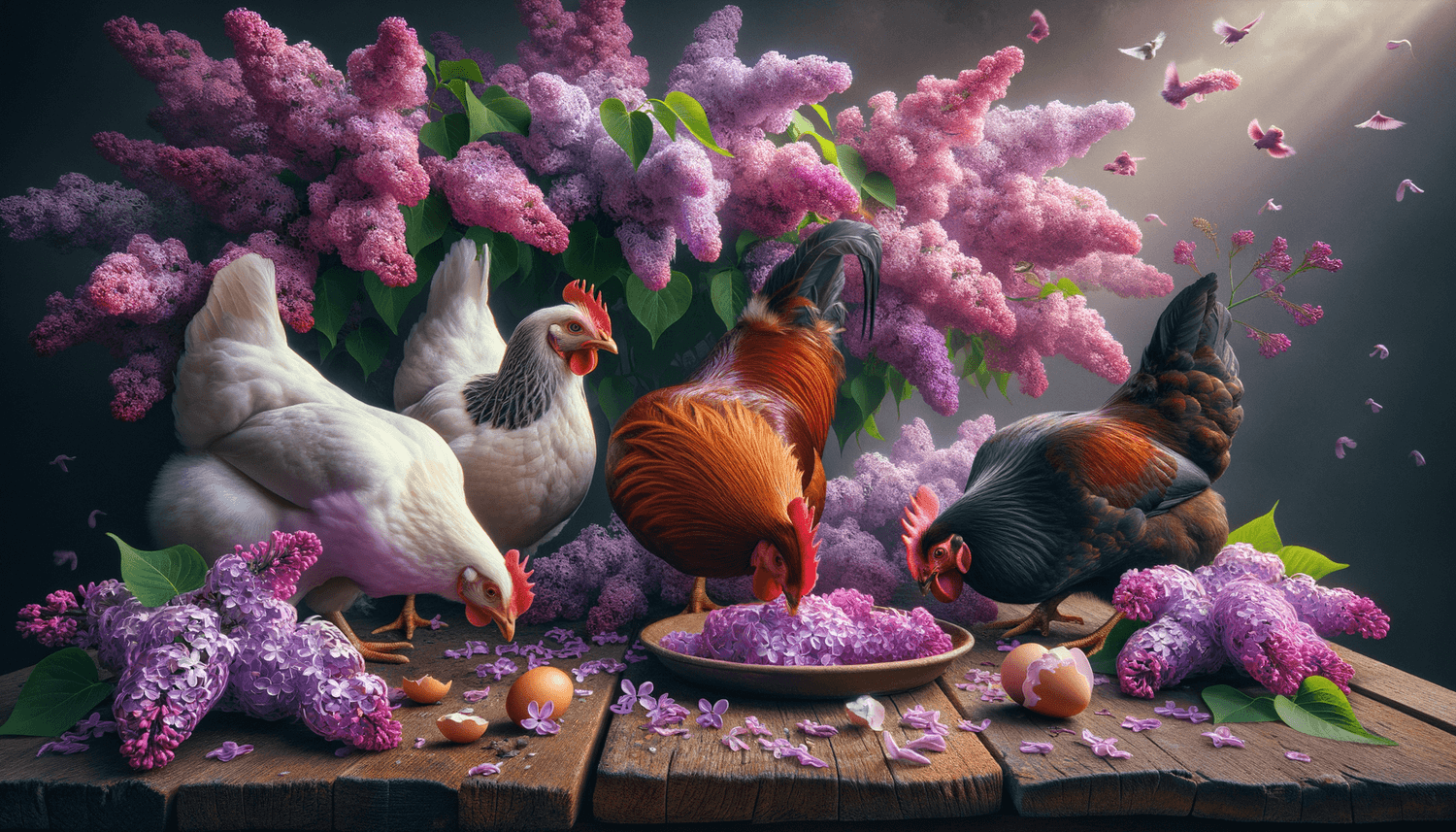Yes, chickens can eat lilac flowers. Lilacs are not toxic to chickens, and they can safely consume the blooms in moderation. The flowers may offer some variety to a chicken’s diet, but they do not provide significant nutritional value, so they should be considered a treat rather than a staple.
Quick Summary
- Chickens can eat lilac flowers.
- Lilacs are safe and non-toxic, but not nutritionally significant.
- Key benefits include dietary variety, with no significant risks when fed in moderation.
- Recommended as an occasional treat rather than a dietary mainstay.
Overview of Lilac Flowers
Lilac flowers come from the Syringa genus and are known for their pleasant fragrance and beautiful blooms that appear in the spring. They are not known for their nutritional content but are primarily appreciated for their ornamental value. While not harmful, they should not be relied upon to provide essential nutrients to chickens.
Benefits and Risks of Lilac Flowers for Chickens
The main benefit of feeding lilac flowers to chickens is the enrichment that comes with adding a new texture and flavor to their diet. There are no significant risks associated with feeding lilacs to chickens, as long as they are given in moderation and do not replace more nutritious foods that chickens require for a well-balanced diet.
Feeding Guidelines
Lilac flowers should be given as a treat and not a main part of a chicken’s diet. Chickens can have a few lilac blooms occasionally, but ensure that the majority of their diet is composed of a balanced commercial feed and other known nutritious treats that can benefit their health.
Alternatives
If you are looking for alternative treats that offer more nutritional value, consider vegetables such as cucumbers or lettuces, fruits like apples and berries, or herbs such as parsley and oregano. All of these can be a healthier choice and provide vitamins and minerals that lilacs lack.
Expert Opinions
Poultry nutrition experts agree that while occasional treats can provide enrichment for chickens, it’s crucial to maintain a diet primarily composed of feeds that are specifically formulated for chickens’ nutritional needs. These feeds are designed to ensure optimum health and egg production.
Frequently Asked Questions
After learning that chickens can saunter through gardens without worry from lilac blooms, some questions might still linger about the flowers they consume. Here are some answers to common inquiries about feeding lilac to chickens.
Are there any parts of the lilac plant that are toxic to chickens?
No, there are no known toxic parts of the lilac plant to chickens; however, as with any plant, the flowers and leaves should be fed in moderation to avoid digestive upset.
Can chickens eat lilac leaves as well as flowers?
Yes, chickens can eat lilac leaves as well as flowers. The same guidelines apply to the leaves—feed them in moderation as a treat.
How often can I give my chickens lilac flowers?
Lilac flowers should be given sparingly; they can enjoy these blooms occasionally, but they shouldn’t be a regular part of their diet. Ensure their primary diet consists of a complete commercial feed.

















